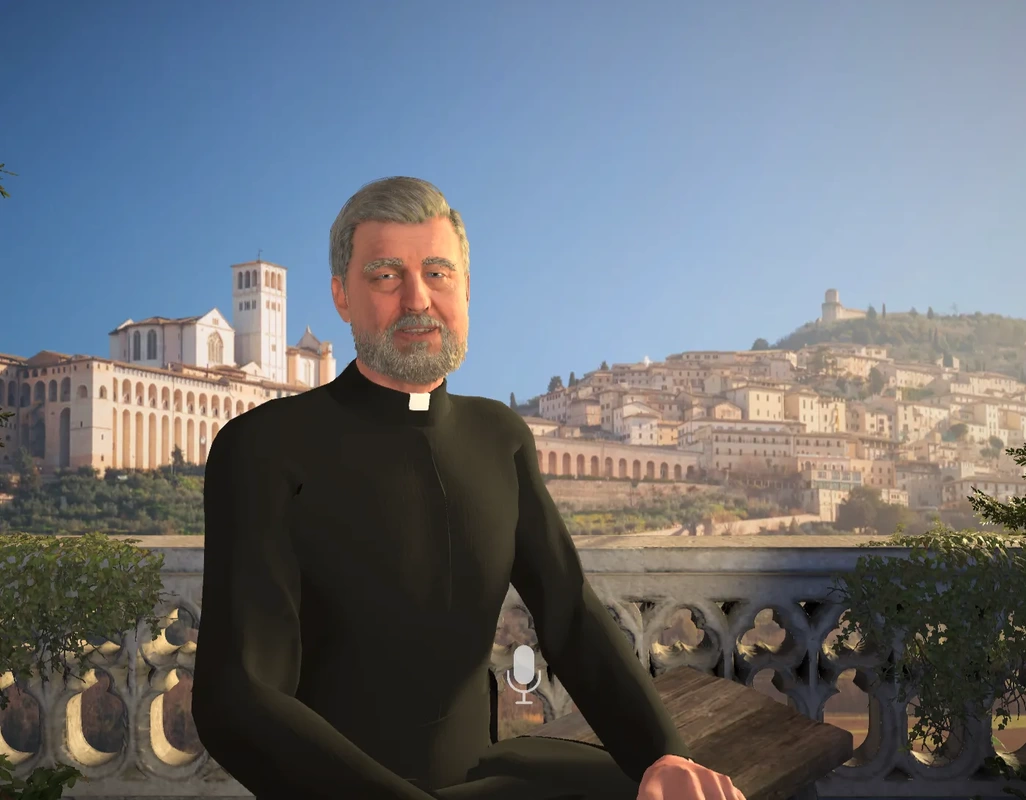This morning I asked our 65 schoolchildren if anyone was named Joseph, so I could give them a chocolate bar for their namesday. Lamentably, not one student—male or female—had received the name Joseph. One student finally remembered that his great-grandfather was “Joseph,” so he got a chocolate bar. That’s the best we could do, but we could do better. Name at least one of your children after Joseph, either first or middle or confirmation name! The Archdiocese of San Francisco has not one parish named for St. Joseph, a fact which I have lamented to Archbishop Salvatore Joseph Cordileone more than once, and to which I attribute at least some of the grievous masculine deficit plaguing this City of St. Francis.
St. Joseph worked because he loved. Love makes even the most arduous tasks light, and the most bitter work sweet. It helps to remember how much we love those for whom we work when the going gets tough. And love cannot be simulated.
Last week a curious incident happened at Catholic Answers in San Diego, that excellent center of apologetics and catechesis. Catholic Answers had unveiled their AI chatbot “Fr. Justin” to answer all Catholic questions, but CA defrocked “Fr. Justin” two days later when the algorithm began dispensing “sacramental absolution” through people’s phones. Leah Libresco Sargeant has offered a good analysis HERE. AI is certainly useful, but to avoid misusing it, we need to understand what it can and cannot do.
The Christian faith is not mere information, artificial or otherwise. The Christian faith is love, not delivered simply in book form, as information, but handed on from one person to another person. Only a person can give you the faith, not a machine, because only a person can give you love. We receive the Lord Jesus from our mothers and fathers, from our priests and our friends, and not merely from the Bible or even less from a chatbot. As Leah writes in her article, “Someone approaching the Church is always asking a double question--what does the Church say about this topic and does Jesus love me? The second question is usually asked and answered implicitly. It can’t be built into a prompt—it requires the personal witness and presence of another human being.”
AI can be helpful to the Church in the way search engines have been helpful. But AI can never replace a priest, or a parent, or a grandmother. Catholic Answers (God bless them for venturing out in AI—nothing ventured, nothing gained!) has taught us something quite valuable as we enter the next level of data processing. Machines can’t fully “think” because “thinking” in its fullest sense requires truth, and truth can only be fully received in love. To “know” someone is to “love” that person, and anything less than “truth in love” is simply data processing.
Benedict XVI, probably the Church’s most powerful intellect of our time, wrote his third and last encyclical on “truth and love,” Caritas in veritate. Trust no love that is not truthful, and accept no truth that is not spoken in love. We look to St. Joseph, today, as a man who loved not artificially but from the heart, proving his love through honest human labor. Even the most spectacular forms of data collection and processing can not replace the most humble manual laborer, a person who can do what no machine can do: he can love another.



 RSS Feed
RSS Feed